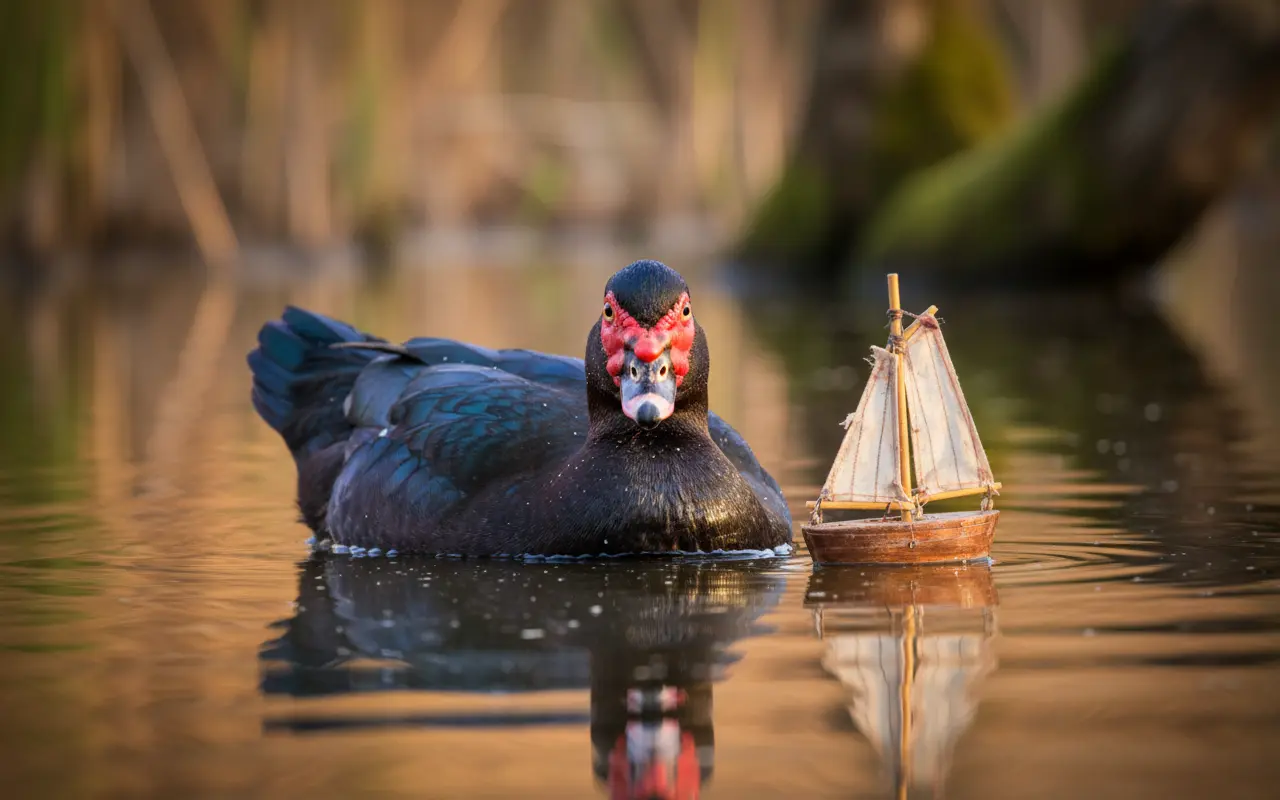If you think parrots have the monopoly on animal conversation, brace yourself for a story straight out of a quirky detective novel: an Australian duck named Ripper has stunned the scientific world by appearing to utter a rather colorful English phrase. Move over, dolphins and elephants—there’s a new vocal talent in town, and he’s got feathers.
A Duck Amongst the Usual Suspects
We all know certain parrots, songbirds, and hummingbirds—and not to forget dolphins, whales, and even elephants—are capable of mimicking the sounds around them, sometimes with jaw-droppingly accurate impressions of the human voice. Now, this eccentric lineup has a feathery new addition: the musk duck (Biziura lobata) of Australia. Two scientists, Dutch ethologist Carel ten Cate and Australian ornithologist Peter Fullagar, have thrown the spotlight on this often-overlooked waterfowl by calling its vocal abilities both unexpected and impressive. Their newly published study shakes up the pecking order in animal sound-mimicry research.
The Case of Ripper and the Colorful Quack
The origins of this story take us back to 1987, at the Tidbinbilla Nature Reserve in the southeast of Australia. Here lived the male musk duck dubbed Ripper, who, as it turns out, could “talk.” And we’re not talking polite duck conversation. In a recording that has since found its way to several media outlets, Ripper quite convincingly repeats a phrase that, shall we say, British television wouldn’t broadcast before 9 p.m.: “You bloody fool.” (Yes, you read that right.)
For their study, published in the British scientific journal Philosophical Transactions of the Royal Society B on September 6, 2021, ten Cate and Fullagar analyzed this very recording to explore the extent of Ripper’s linguistic talents. The phrase, which in French would translate to the not-so-flattering “espèce d’imbécile,” sounds remarkably human—so much so that Carel ten Cate, upon rediscovering the recording, was left stunned. “I couldn’t believe it,” he admitted. “I wondered if it was a joke.”
The story of how this discovery re-emerged reads almost like a detective tale: ten Cate, while reading a specialized work, stumbled across references to a duck mimicking human vocalizations. This piqued his curiosity, leading him to connect with Peter Fullagar, the now-retired Australian ornithologist who originally made the recording over three decades ago.
How Does a Duck Learn to Talk?
How does a duck develop such an unusual party trick? The answer likely lies in its upbringing. Ripper, born and raised at Tidbinbilla, probably overheard one of the reserve’s keepers say the infamous phrase, then set about repeating it (with or without fully grasping its meaning—one can only speculate on his comedic timing). Interestingly, there remains some scientific debate over whether the final word uttered was “fool” (idiot) or actually “food” (nourishment). Either way, the speech was persuasive enough to merit global attention—and perhaps a gentle reminder to keepers to mind their language around impressionable ducks.
Ripper didn’t stop at phrases—the talented duck could also imitate the slamming of a door.
He isn’t the species’ only vocal prodigy: another male musk duck captured on Fullagar’s recordings mimicked the quacking sounds of a different duck species.
Ten Cate and Fullagar’s research also unearthed reported stories (alas, lacking audio evidence) of two other captive musk ducks—hailing from UK reserves—imitating pony snorts and a keeper’s distinctive cough. The common denominator? All the ducks displaying these uncanny skills had lived in captivity, giving them ample exposure to the curious chorus of human and animal sounds.
A Quacking Call for Further Research
What does this all mean for science? In their study, ten Cate and Fullagar call on fellow researchers to dive deeper into vocal learning among birds. Why is it that some species—including, now, the musk duck—can develop this surprising ability, while others never utter anything beyond their own instinctive calls?
It’s a question with implications reaching beyond avian oddities. After all, understanding how and why vocal learning evolves could shed light on the origins of human language itself. For now, Ripper’s legacy is a reminder that nature always has another surprise up her feathery sleeve. Next time you hear a duck mutter something suspiciously like “You bloody fool,” don’t adjust your ears—just tip your hat to science’s latest talking sensation.
You might also like:

David Miller is an entertainment expert with a passion for film, music, and series. With eight years in cultural criticism, he takes you behind the scenes of productions and studios. His energetic style guides you to the next big releases and trending sensations.

